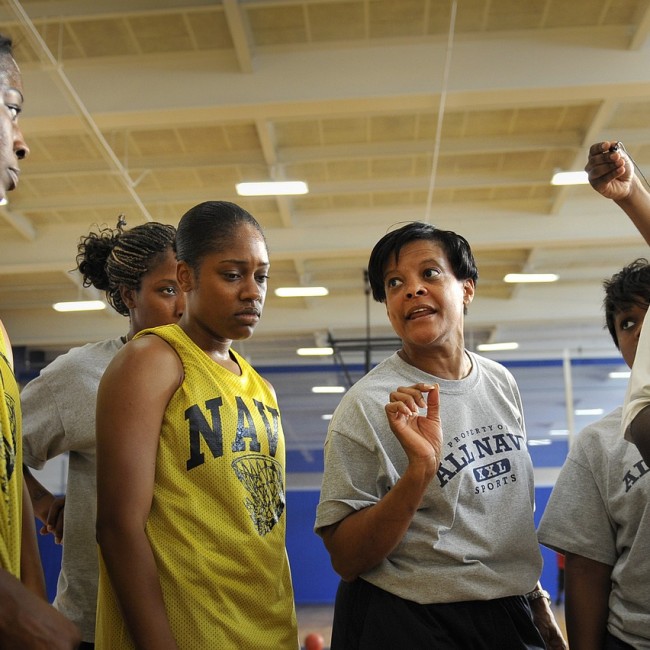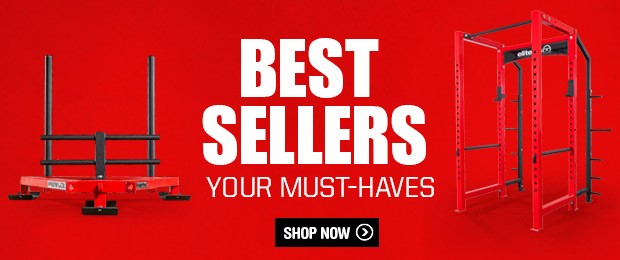
On a recent trip with my family, we were driving by an employment office building that had a sign out front that said, “You can do anything, but you can’t do everything.” This gave me a perfect idea for an article—the importance of delegating. It was without a doubt the hardest thing for me to do, and it took me a long time to be able to do it at all.
Growing up, my entire family—parents, grandparents, etc.—and everyone I knew all lived by the code that "if you want something done right, then you had better do it yourself." So, that is what I did. I just worked and tried to do it all. It took me at least six years to even think about letting someone run an agility station! I would just alter the way I did things so that I could run every group. I was doing ten times the work I had to just because I didn't feel like I could trust anyone. I always figured that if it was up to me to get the job done, then why should I put my future in someone else’s hands?
In all honesty, I would probably still be doing this same thing if it weren't for my assistants. They were getting sick of just setting things up and coaching alongside me. They wanted to get better and finally asked me, "How can you assess our progress if we don't ever have a chance to coach?" As usual, they were right. I had to find a way to make them feel like they were invested in the program. Therefore, I sat down and came up with a plan that we would all be comfortable with. I decided that we would all go back to square one, and I would cover everything that we did with the program.
It is incredible to watch young strength coaches grow and see your program become better and better.
So, every day during our May break, we went over what I expected in regards to all warm ups, lifts, running drills, discipline, and cool downs. We also went over many different scenarios of what could happen during workouts and how to handle certain players. It made me feel much more comfortable knowing that they knew not just what we were going to do, but also how and why we were going to do it. It helped all of us become better coaches. What's more, it let us tweak some things that needed to be tweaked in the program—things that I just could not put a finger on if I only did it by myself.
I felt so good about the situation that I decided to take it a step further. I broke the team up into three groups: linemen, mid-players, and skill players. I then assigned staff members to those groups, making them position coaches in a sense. We sat down and really attacked who would fit in and be able to have the most success with what group and why. This was all new to the staff and myself, so we just made it up as we went along. We put our heads together, really looked at our team's needs and wants, and asked a lot of questions.
- Who has the most experience with this group?
- Did he play this position?
- Who does he want to work with?
- Does his personality fit this group of players?
- Will the players respond to this guy or that guy better?
- Does he know the specific needs for this position?
- Is he innovative?
These are hard questions that need to be answered if you want to feel comfortable trusting someone to run groups for you. This is why we devoted an entire month to this process. I had to feel that the staff and I had the same expectations, and I would hold the team to these same standards in order for us to succeed. I also set a rule in place that I brought from all my years of working in a powerlifting gym: it's not personal, it's business. In other words, if anyone saw something wrong in someone else’s group (i.e. bad form), then anyone could correct that person, and that team leader would not take offense. Even if something was going wrong in my group, one of my guys could come over and correct what was going on. I think this was the most important thing we could have done because it showed our players that it was truly all about team performance first—egos came second. In turn, it gave the staff a sense of ownership, and they really felt like they were contributing to the overall program. It made a huge difference in their contributions to the plan, and the energy level went up. The staff really became strong (the most functional, dysfunctional group of guys ever assembled).
If you are going to delegate, make sure you know your guys inside and out, and find the best place for them to help you and your players.
I am not one of those people who remembers every game, every play, every workout, and so on. I do, however, remember the first workout where I “floated” between workout groups and agility stations. I was more anxious on that day than I was for my wedding day. Even after all the meetings and dry runs...well, you never know. It was like sending kids to the bathroom by themselves for the first time—you are hoping for the best, but you are also prepared for something messy. Yet, I could not have been happier with how it turned out. Everything went off without a hitch, and the players really fed off the energy and camaraderie of the staff. After that day, it just got better and better. The staff really got to know their groups—how to motivate them, work around their injuries, find and destroy their weaknesses, and (most importantly) share in their success. As an added bonus, when new interns or staff members came on board, the staff would evaluate where they would fit in, and we would make them watch and shadow us until we felt comfortable with giving them a role, no matter how big or small it was.
That is the beauty of doing it this way—you get to play to your staff's strengths and, in turn, your whole program goes to that next level. It is a lot of work, but it is very rewarding at the same time. It is incredible to watch young strength coaches grow and see your program become better and better. I will give one word of caution, though. Do not misplace trust with ability. If you are going to delegate, make sure you know your guys inside and out, and find the best place for them to help you and your players. If you have guys who don’t fit any criteria that you have set, or who you don’t feel comfortable with letting do a certain task, then don’t let them. Some people just don’t fit. Let them clean up after groups and set up the field. I know it sounds harsh, but remember, it is your ass on the line. Don’t have a weak link in your chain. Get better by addition or subtraction. When you get the right staff who are all pulling in the right direction as an extension of you and your plan...there is nothing like it. At that point, you really can do everything.











